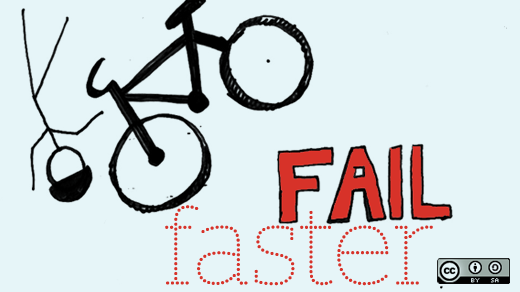Promoting a culture that supports failure is a foreign concept to most people, but not for the panelists speaking about open government and business at CityCamp Raleigh. According to the panelists, who range from vice presidents of corporations to chief information officers of Raleigh government, there is a general consensus that failing faster provides a quicker path to innovation.
Jimmy Goodmon, VP/GM, Capitol Broadcasting New Media Company (WRAL) and a member of the business panel, explained that failure is alright. You can take the lessons learned from your failures as intellectual property, and eventually, something will stick. People learn from failure and the quickest way to get something right is to see what doesn’t work.
Andy Krzmarzick, Community Manager at GovLoop used the example of the Triangle Expressway, a new stretch of highway built in the Triangle that cost just over $1 billion. The Expressway is not used as heavily as projected and there have been flaws in the billing system. The panel suggested that some of these problems might have been avoided if there were smaller projects that failed. Failures could have worked out the flaws in this large, costly project.
Another important facet of this philosophy is transparency. Transparency builds trust, which is crucial for learning from failure. The panelists believed that without transparency, promoting failure is useless because failure is only valuable if one learns from mistakes. In other cultures where failure is not embraced, mistakes are often swept under the rug. Because failure is not seen as a negative thing in an open company or government, mistakes are published out in the open. The benefit? Anyone can learn from them and mistakes are repeated less often.
Members of the audience raised concern about promoting a culture where failure is ok—especially in the government sector. Some departments, like emergency response, cannot afford mistakes. The panelists acknowledged this concerned and explained that the process of work flow is very important. Every step requires open feedback and many eyes looking at the problem and solution.
DeLisa Alexander, Chief People Officer at Red Hat and a member of the business panel, cited a famous open source saying, "With many eyes, all bugs are shallow." The panel suggested that no new plan is foolproof and any reform can lead to mistakes. They believe that even in the case of emergency response, it is better to have a few small errors than one large mistake.
What do you think about promoting a culture that embraces failure? Have you experienced it at your job or working with government? We’d love to hear your thoughts.
You can also listen to the discussions if you missed CityCamp Raleigh.






8 Comments